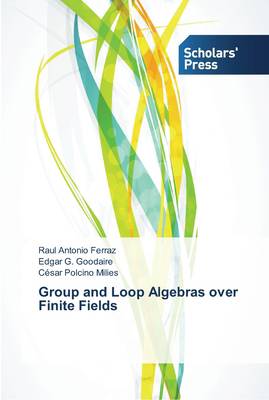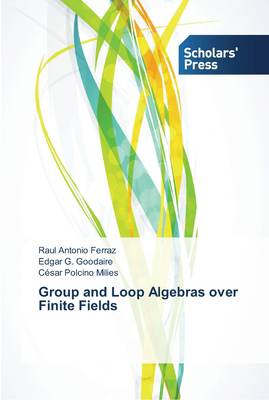
Door een staking bij bpost kan je online bestelling op dit moment iets langer onderweg zijn dan voorzien. Dringend iets nodig? Onze winkels ontvangen jou met open armen!
- Afhalen na 1 uur in een winkel met voorraad
- Gratis thuislevering in België vanaf € 30
- Ruim aanbod met 7 miljoen producten
Door een staking bij bpost kan je online bestelling op dit moment iets langer onderweg zijn dan voorzien. Dringend iets nodig? Onze winkels ontvangen jou met open armen!
- Afhalen na 1 uur in een winkel met voorraad
- Gratis thuislevering in België vanaf € 30
- Ruim aanbod met 7 miljoen producten
Zoeken
Group and Loop Algebras over Finite Fields
Raul Antonio Ferraz, Edgar G Goodaire, César Polcino Milies
Paperback | Engels
€ 66,95
+ 133 punten
Omschrijving
In this, the 15th year of the 21st century, the need to translate plain text into code and to transmit securely, and the plethora of uses to which encryption is applied, needs no amplification. Recent methods have produced so-called cyclic codes, which have the property that if (a_1, a_2, a_3, ..., a_n) is a code word, then so is the cyclic shift (a_n, a_1, a_2, ..., a_{n-1}). The realization that such a code is an ideal in the group algebra of a cyclic group has motivated a large body of research into using group algebras to produce codes. In this area, the central theme is ``efficiency, '' a term that describes the need to maximize simultaneously both the Hamming distance between code words and the dimension of the code. Since an ideal in a semisimple group algebra KG corresponds to a central idempotent, and since a central idempotent is the sum of idempotents that generate the simple components of KG, the need to find these simple components is clear. This is the theme of the present monograph, which will interest many algebraists, including those who study Moufang loops and alternative rings. The groups studied are the building blocks of loops whose loop rings are alt
Specificaties
Betrokkenen
- Auteur(s):
- Uitgeverij:
Inhoud
- Aantal bladzijden:
- 148
- Taal:
- Engels
Eigenschappen
- Productcode (EAN):
- 9783639512687
- Verschijningsdatum:
- 21/05/2015
- Uitvoering:
- Paperback
- Formaat:
- Trade paperback (VS)
- Afmetingen:
- 152 mm x 229 mm
- Gewicht:
- 226 g

Alleen bij Standaard Boekhandel
+ 133 punten op je klantenkaart van Standaard Boekhandel
Beoordelingen
We publiceren alleen reviews die voldoen aan de voorwaarden voor reviews. Bekijk onze voorwaarden voor reviews.











